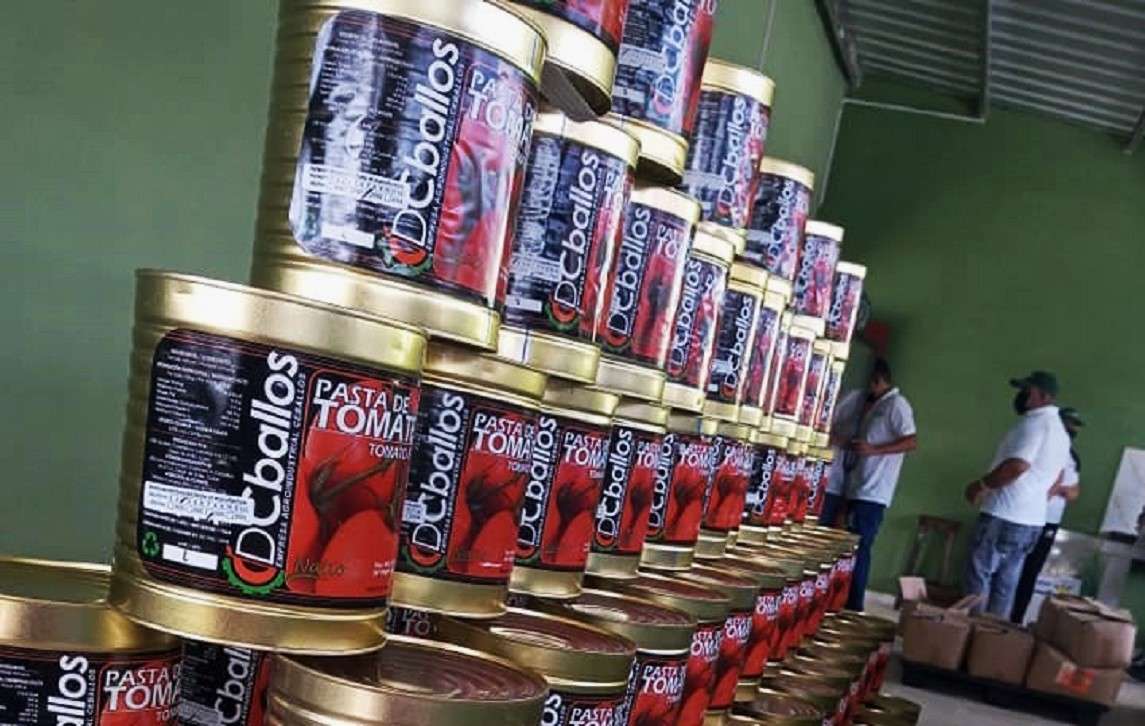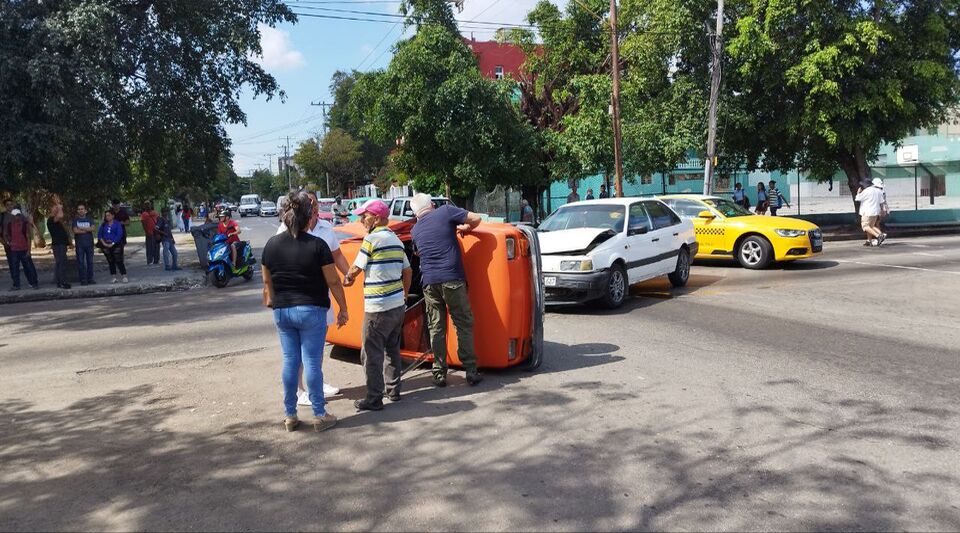The agro-industrial company ceballoslocated in the province of Ciego de Ávila, confirmed that the cans of tomato paste sold under its label in several provinces, and which generated complaints due to their poor quality, do not come from the entity.
The director of the Marketing Company of Agroindustrial Ceballos, Arliety Gutiérrez Pérez, said to the newspaper Invader that based on the supposed lot and page number, and the date of manufacture of the cans shown in the complaints, the veracity of the product could be called into question.
The fact took on connotation when a resident In Santiago de Cuba, he bought a can of tomato paste last February, trusting that the company’s label guaranteed the quality of the product.
However, and according to the post published on his Facebook profile along with the photos of the packaging, “it was not paste, but purée”, and “it tasted like frutabomba and something spicy.”
In this regard, Gutiérrez Pérez explained to the journalist Sayli Sosa that the numbering of the lot and the page shown in the photo of the complaint was just an unintelligible scribble. He added that although the date was marked as January, the tag series went as far as 2017.
To argue that it was a counterfeit, the directive added production and distribution figures, making it clear that the product manufactured by them was not marketed during the last two years in retail networks.
A friend asked me to pull the skein of a tomato paste that did not taste like tomato, which according to the label said to be from the company @dcballos; passing me the headache and the task of reaching the end of the scam. #Ciego de Avila #Opinion @rocdecubanohttps://t.co/Hlb8CJm8JU
– Invasor Newspaper (@Invasorpress) March 7, 2023
According to the text, “Tomato Paste sales in 2021 were in the order of 44,429 cans, 23,000 of them for Tourism, and the rest for wholesale. In 2022, the Company only produced a total of 19,795 cans, of which 16,325 were marketed directly with Tourism and customers who return liquid capacity; the rest was allocated to wholesale marketing”.
In the case of Tomato Puree, the company assured that “in 2021 it was not produced in a 3.2-kilogram format. In 2022, 35,811 cans were bottled, mainly intended for Tourism, with sales concentrated in the months of June, July, August and September.
DCballos and the fakes
Gutiérrez Pérez affirms to the publication that the rise of the DCballos brand and its presence in almost the entire country before COVID-19 was taken advantage of “by unscrupulous elements that have introduced a product that is not ours with our commercial brand. It is not the first time that the Ceballos Agroindustrial Company has been involved in a situation of plagiarism”.
To avoid the first situations of this type, which date back to 2014, the company began to print brands on the lid of the containers (although it could not sustain it over time) and strengthened its action mechanisms against consumer complaints, as well as certified with the ISO 9001 standard for all its productions.
However, the newspaper itself acknowledges that reports of counterfeiting cases have been received from clients residing in other provinces, such as Havana, Camagüey, and even Ciego de Ávila.
question marks
For the author of the article “The tomato paste scam” it is evident that the label designed for Ceballos was used on a fake product, and she points out that the question of whether the label came from the entity or the place where it was placed remains unanswered. prints. It is also not known when the extraction could have happened.
The journalist also points out that “the sense of defenselessness of poorly educated, needy or trusting clients in the face of crimes of this nature remains in the air.”
In addition, it questions “the very scant observance of local authorities, which allow direct sales of products without requiring minimum documents, such as invoices, declaration of conformity or place of origin”, as well as “the prestige of a company from Ciego de Avila whose trademark is almost as denomination of origin for the province”.
Tomato puree is one of the most demanded products by the Cuban population, given its usefulness for preparing food based on recipes and modes that prevail in the diet and gastronomic customs of the island.
Its scarcity has made it a highly valued product, given the inability of the national industry to meet the high existing demand, and the fact that it is only regularly sold in stores that operate in Freely Convertible Currency (MLC) with unattainable prices. for the majority of Cubans.

















